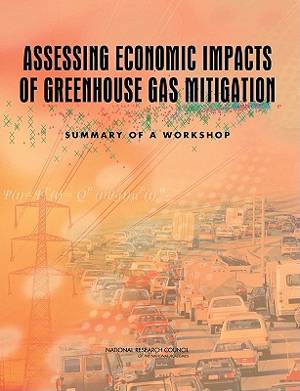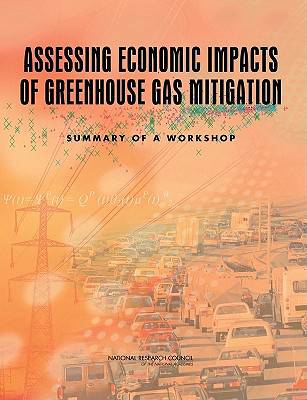
- Afhalen na 1 uur in een winkel met voorraad
- In januari gratis thuislevering in België
- Ruim aanbod met 7 miljoen producten
- Afhalen na 1 uur in een winkel met voorraad
- In januari gratis thuislevering in België
- Ruim aanbod met 7 miljoen producten
Assessing Economic Impacts of Greenhouse Gas Mitigation
Summary of a Workshop
National Research Council, Division on Engineering and Physical Sciences, Board on Energy and Environmental SystemsOmschrijving
Many economic models exist to estimate the cost and effectiveness of different policies for reducing greenhouse gas (GHG) emissions. Some approaches incorporate rich technological detail, others emphasize the aggregate behavior of the economy and energy system, and some focus on impacts for specific sectors. Understandably, different approaches may be better positioned to provide particular types of information and may yield differing results, at times rendering decisions on future climate change emissions and research and development (R&D) policy difficult. Reliable estimates of the costs and benefits to the U.S. economy for various emissions reduction and adaptation strategies are critical to federal climate change R&D portfolio planning and investment decisions. At the request of the U.S. Department of Energy (DOE), the National Academies organized a workshop to consider these issues.
The workshop, summarized in this volume, comprised three dimensions: policy, analysis, and economics. Discussions along these dimensions were meant to lead to constructive identification of gaps and opportunities. The workshop focused on (1) policymakers' informational needs; (2) models and other analytic approaches to meet these needs; (3) important economic considerations, including equity and discounting; and (4) opportunities to enhance analytical capabilities and better inform policy.
Specificaties
Betrokkenen
- Auteur(s):
- Uitgeverij:
Inhoud
- Aantal bladzijden:
- 54
- Taal:
- Engels
Eigenschappen
- Productcode (EAN):
- 9780309127004
- Verschijningsdatum:
- 1/05/2009
- Uitvoering:
- Paperback
- Formaat:
- Trade paperback (VS)
- Afmetingen:
- 211 mm x 274 mm
- Gewicht:
- 181 g

Alleen bij Standaard Boekhandel
Beoordelingen
We publiceren alleen reviews die voldoen aan de voorwaarden voor reviews. Bekijk onze voorwaarden voor reviews.









